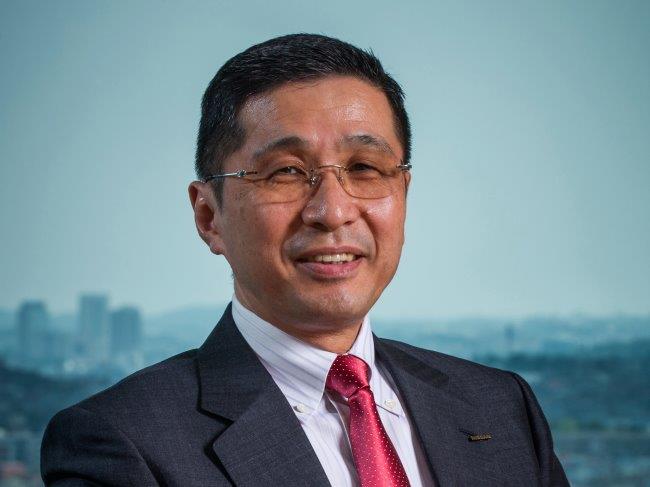Could an American who doesn’t read Japanese and barely speaks the language have masterminded a major corporate financial crime in Japan?
And could that same individual, conspiring with his CEO, another foreigner, have pulled off this fraud for seven years, from 2011 to 2017, without raising red flags in the organization’s accounting and legal affairs departments and to its internal and external auditors, almost all of whom are readers, writers and speakers of Japanese?
It doesn’t pass the smell test. And I am not alone in having reservations. Japan’s largest business daily, Nihon Keizai Shimbunn, predicts lawsuits will be filed against the automaker in the wake of the Nov. 19 arrests of Greg Kelly, an American member of Nissan’s board of directors, and former Nissan and Mitsubishi Chairman Carlos Ghosn, who remains chairman and CEO of French automaker Renault.
On Monday, Dec. 12, the Tokyo District Public Prosecutors Office formally charged Kelly and Ghosn of making false disclosures in annual securities reports. Both claim they are innocent.
 The same charge was filed against Nissan as a legal entity.
The same charge was filed against Nissan as a legal entity.
If found guilty, the executives face up to 10 years’ imprisonment and/or ¥1 million ($88,000) in fines. It is not clear what penalties for additional charges, if any, would be.
Lest we forget, the French-Lebanese-Brazilian Ghosn is credited with saving Nissan from bankruptcy nearly 20 years ago when Renault extended the Japanese automaker a financial and managerial lifeline. Today, Renault owns 43% of Nissan and Nissan owns 15% of Renault. Nissan has a controlling interest in Mitsubishi, which is an equal partner in the Renault-Nissan-Mitsubishi Alliance.
I mention Kelly first because Nissan CEO Hiroto Saikawa (pictured, below left) accused him first of being the “mastermind” of the alleged crime, which essentially involved underreporting deferred income – specifically, stockholder appreciation rights – to Japanese financial authorities.
Allegedly Ghosn, with Kelly’s assistance, underreported his deferred income by ¥5 billion or $44 million over the first five years when he was CEO, and by an additional ¥4 billion ($35 million) from 2016.
It is not clear if these shares must be reported, as there is disagreement even in Japan about the need to report deferred income in official financial statements. And Kelly, in unconfirmed reports, claims to have received a written opinion supporting the decision not to report such payments.
This money, however, only can be disbursed upon retirement – at which time Nissan’s CFO would have to sign off on the disbursement and the board of directors would have to approve it.
It begs the question about why Saikawa, Nissan’s CEO since November 2016 (the first six months sharing the position with Ghosn), didn’t take this matter to Nissan’s board rather than go to prosecutors first.
 Nissan fired Ghosn and Kelly on Nov. 22, three days after their arrests. Ghosn was removed as Mitsubishi chairman on Nov. 26. He remains chairman and CEO of Renault, which news reports say has not seen full details of the alleged misconduct.
Nissan fired Ghosn and Kelly on Nov. 22, three days after their arrests. Ghosn was removed as Mitsubishi chairman on Nov. 26. He remains chairman and CEO of Renault, which news reports say has not seen full details of the alleged misconduct.
Saikawa declined to provide details of the alleged crimes at a Nov. 19 news conference, deferring to the Japanese prosecutors’ “investigation” which some feel is not legitimate.
No one knows how this scandal will play out until Ghosn and Kelly, who joined Nissan North America in 1988, have their day in court. Even then, we might not know the truth until they are allowed to leave Japan and tell their side of the story without fear of reprisal.
For the moment, they are heading into their second month of solitary confinement in tiny cells with no TV, radio or reading materials unless their Japanese attorneys or their embassies provide them.
The charges against them were made in a “secret” whistleblower report. And while it may be appropriate to protect the whistleblower, it is open to question why testimony and evidence are being concealed.
Ghosn and Kelly are being interrogated daily without their attorneys present. The strategy of prosecutors in Japan is to force a confession, which helps explain their 99% conviction rate.
The normal limit for detaining suspects is 23 days. Ghosn and Kelly are due in court again on Dec. 20. However, prosecutors can indefinitely extend their incarceration by 10-day intervals by re-arresting them on suspicion of new charges.
Ghosn’s Japanese lawyer, former prosecutor Motonari Otsuru, did not respond to questions submitted by Wards.
Neither the U.S. Embassy in Tokyo, the French Foreign Affairs Ministry in Paris nor the prosecutor’s office in Tokyo will comment.
“Nissan as an entity (also) is charged,” the automaker acknowledges. “Possible penalties could include fines…We are not at a point where we are required to enter a plea.”
Even if prosecutors succeed in forcing confessions from Ghosn and Kelly, Nissan is a global company with major operations in North America, Europe and Asia – and don’t be surprised if, once they are outside Japan and their due-process rights are restored, the executives file civil claims against Nissan.
And don’t be surprised if shareholders, once they learn details about the corporate governance breakdown inside Nissan, file a shareholder action against the automaker.
Roger Schreffler is a veteran business journalist and WardsAuto correspondent who has covered the Japanese auto industry since the 1970s. He has followed all of the major automotive joint ventures dating back more than 30 years including the Renault-Nissan Alliance. Prior to beginning his career in journalism, he studied Japanese history and politics at the University of Pennsylvania.





